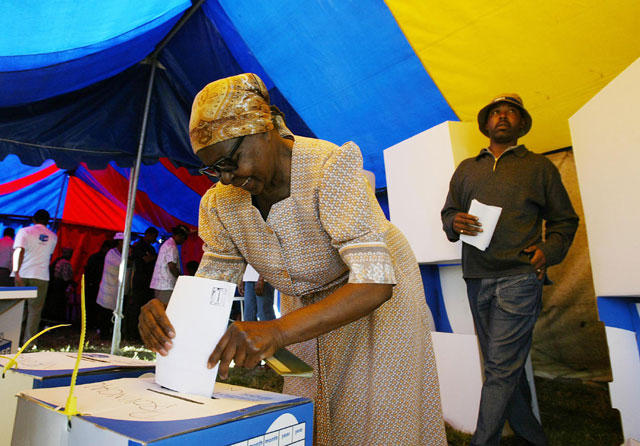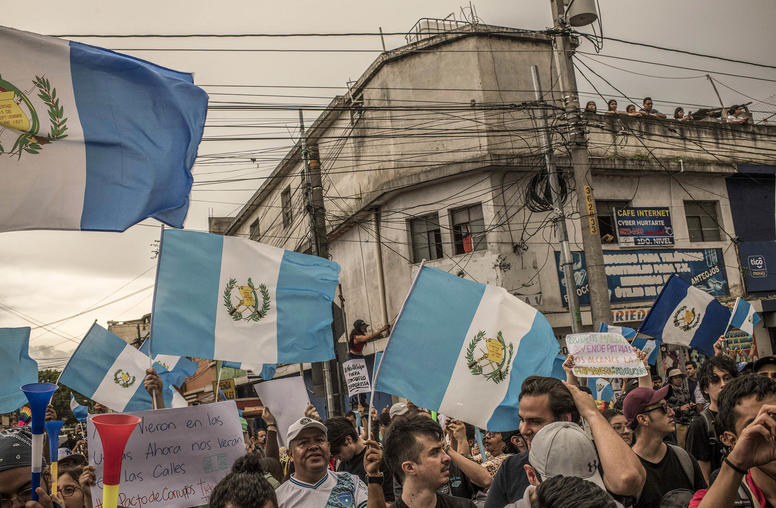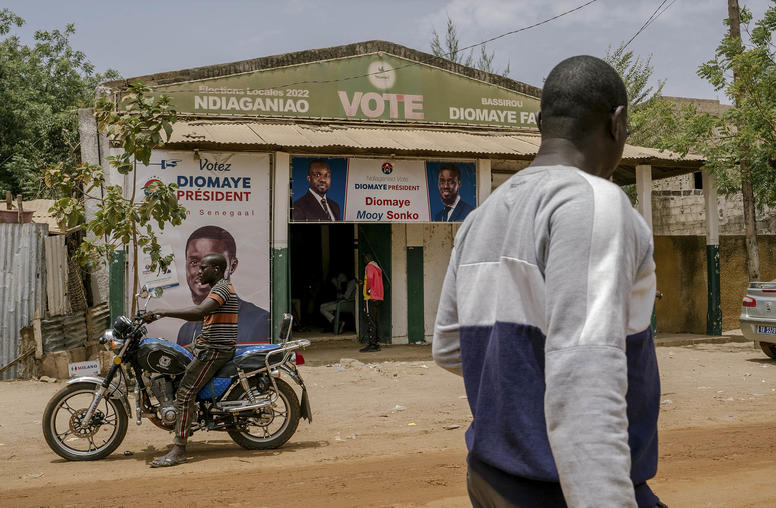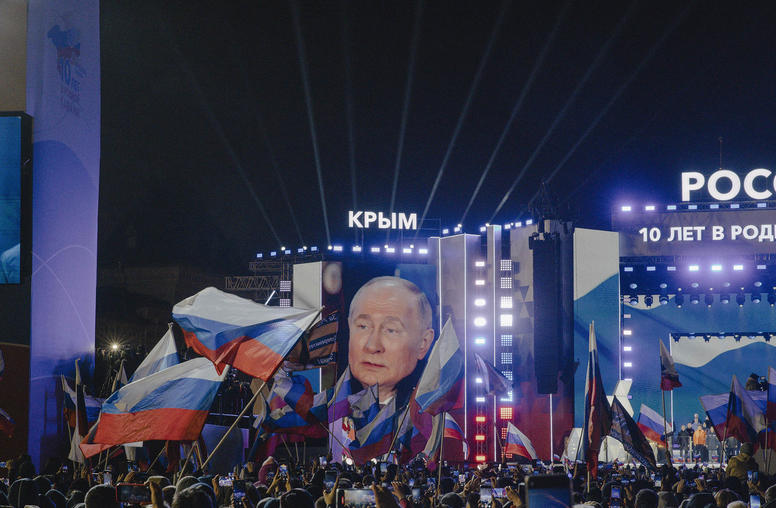Reducing Electoral Violence in Sub-Saharan Africa
Dorina A. Bekoe, author of “Voting in Fear: Electoral Violence in Sub-Saharan Africa” and former USIP senior program officer, discusses her book’s new findings on elections and conflict in Africa and which countries are at risk for violence in the months ahead.

Dorina A. Bekoe, author of “Voting in Fear: Electoral Violence in Sub-Saharan Africa” and former USIP senior program officer, discusses her book’s new findings on elections and conflict in Africa and which countries are at risk for violence in the months ahead.
Have some countries been able to successfully reduce electoral violence once it starts?
Yes, there are important examples from Ghana’s 2004 and 2008 pre-election preparations.
In 2004 and 2008, Ghana’s leading civil society organizations worked with international partners to train a subset of election observers to monitor electoral violence before the upcoming polls. In 2004, the Ghana Center for Democratic Development and the Institute for Policy Alternatives selected nine at-risk constituencies and in 2008 the Coalition of Domestic Election Observers (CODEO) selected 25 at-risk constituencies. In each case, the data obtained regarding rising tension and violent clashes were shared with relevant stakeholders – such as security services, the media, the national peace council, and other civil society organization – for the purposes of intervening strategically to defuse hostilities. In the more extensive 2008 exercise, the data show that these timely interventions helped to progressively reduce the number of violent incidents recorded before the elections.
In 2012, 65 constituencies have been identified for close monitoring by CODEO. As in the past, the aim is to intervene proactively to reduce the level of tension and resolve conflicts before they escalate into more serious incidents.
What are important questions that need to be answered with respect to electoral violence?
A stunning result from the data and the African Electoral Violence Dataset, compiled by Scott Straus and Charlie Taylor, is the failure of electoral violence to abate over time. Proponents of democracy would theorize that violence around elections should decrease as countries stayed democratic for longer periods of time. But, in fact, there seems to be little relationship between the two: electoral violence seems to persist as the same rate in 2008 (the last year in the dataset) that it did in 1990 (when many African countries adopted democratic reforms). Indeed, even in countries like Ghana, where most analysts feel comfortable asserting its progressive democratization, there is regular electoral violence.
This persistence of electoral violence is worrying. It warrants deeper understanding of the processes of democratization and institutional reforms and the incentives available to perpetrators for using violent versus peaceful strategies for winning or resolving election-related disputes. Of particular concern is the impunity enjoyed by many that commit or order electoral violence: how does this affect the calculus to use violence as a political strategy? How do existing grievances that otherwise lie dormant for years, suddenly transform into violent confrontations? The answers to these questions may begin to provide some insight to why electoral violence persists even amid progressively consolidating democracies.
What countries are at risk of electoral violence in the next several months?
In the near term, I would focus attention on Ghana, Kenya, and Togo:
In Ghana, while the level of electoral violence did not rise to threaten the state, there were still disturbing incidents of political candidates being assaulted and even killed, political supporters being harassed and the media unable to regulate inflammatory language. It all made for a very tense period. Similar patterns are being repeated today, as the country prepares for the 2012 general elections. Civil society, national peace institutions, electoral institutions, and nationally respected authority figures will be the key to ensuring peaceful polls.
Kenyans not only face unresolved grievances related to ethnicity and land, but also face a completely new electoral map and will be voting for six levels of government. Politicians are trying to position themselves in ways that increase their chances of winning, as evidenced by the constantly changing political alliances. So far, none of the perpetrators of violence in past elections have paid a price (though there has been an arrest in the recent clashes in Tana District), which increase the chances that politicians will see violence as a viable political strategy.
Togo’s legislative elections will also likely be violent. The political pact negotiated in the wake of the 2005 elections where at least 500 people lost their lives has fallen apart. The political opposition is more united in ousting President Faure Gnassingbe than it has ever been. They have been fearless in facing the Togolese security forces during their nearly weekly protests. If elections take place under circumstances than the opposition deems unfair, I would expect protests and violent clashes with security officers.



